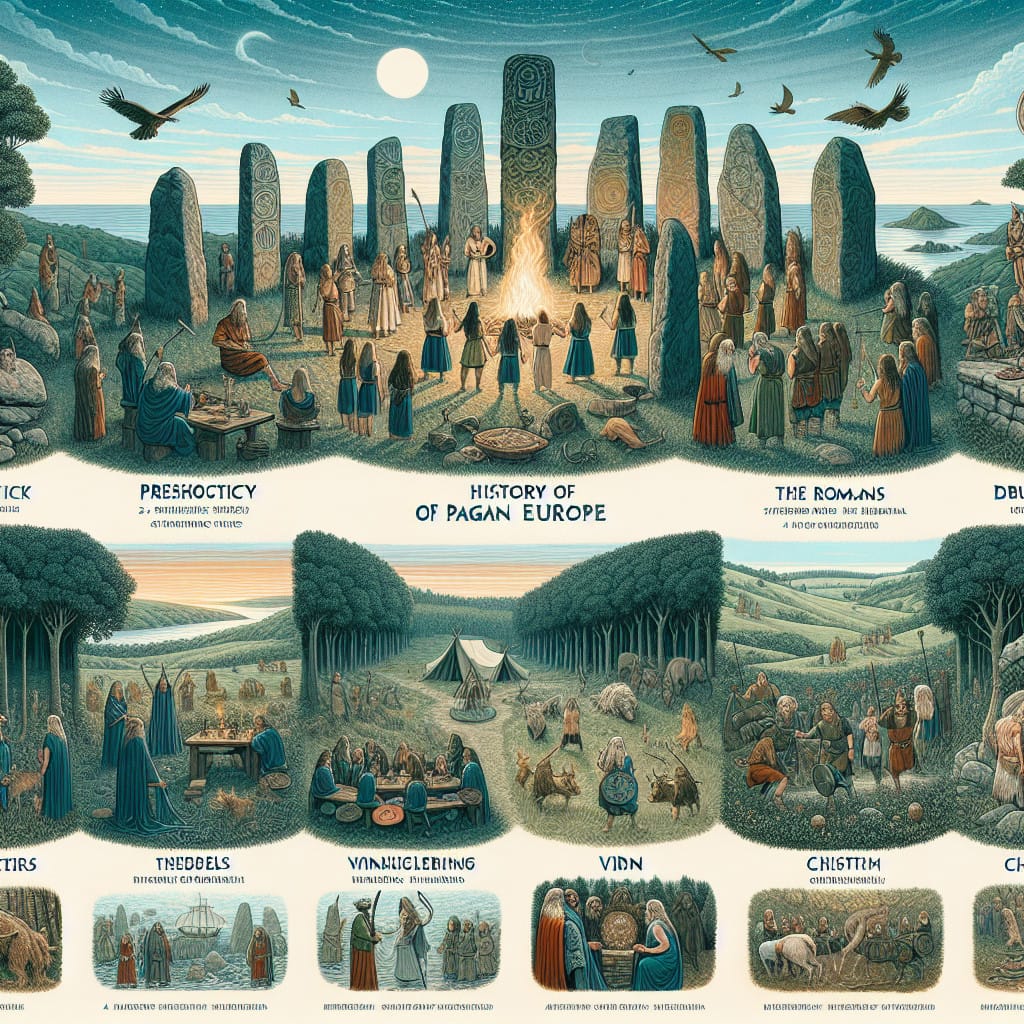The history of Pagan Europe is a long and varied one. It is a story of diverse cultures, ancient spiritual beliefs, and a wide range of practices and rituals. From the early Neolithic period to the present day, Paganism has been a part of the European landscape. This article will explore the history of Pagan Europe and its many manifestations throughout the ages. We will examine the various forms of Paganism in Europe, its development over time, and its influence on modern society. We will also explore the various rituals and practices associated with Paganism, and how they have changed over time. Finally, we will look at how Paganism has been viewed and treated throughout the ages, and what its current status is in modern Europe.
Pagan Europe is a term used to refer to the pre-Christian religious beliefs, practices, and cultures of the people in Europe prior to the spread of Christianity. The term is used to describe a wide variety of spiritual beliefs and practices from different regions and time periods, and can encompass polytheistic religions such as Norse, Greek, and Roman, as well as animistic beliefs, and even some aspects of shamanism.
The Pre-Christian Period
The pre-Christian period of Pagan Europe is a vast and varied field of study, with evidence of spiritual beliefs and practices dating back to the Paleolithic era. During this time, the spiritual beliefs and practices of the ancient Europeans were largely based on animism and polytheism, with the worship of multiple gods and goddesses, and the belief that many natural objects had spiritual properties. The ancient Celts were especially renowned for their polytheistic spiritual beliefs, as were the Norse, who worshipped a pantheon of gods and goddesses.
The Rise of Christianity
The rise of Christianity in Europe began with the conversion of the Roman Empire in the 4th Century AD. As Christianity spread, it replaced many of the polytheistic religions and practices of the ancient Europeans, though there were still pockets of pagans throughout the region. The Christianization of Europe was a gradual process, taking centuries to become fully established, and resulting in the adoption of Christian beliefs and practices by the general population.
The Pagan Revival
The Pagan Revival, also known as the Neopagan Movement, began in the 19th Century as a reaction to the increasing secularization of Europe. This movement was largely driven by a renewed interest in the pre-Christian spiritual beliefs and practices of the ancient Europeans. This led to the formation of new religions and spiritual practices, such as Wicca and Neo-Druidism, which combined elements of the ancient polytheistic religions with modern spiritual philosophies and ideas.
Modern Paganism in Europe
Today, Paganism is a thriving spiritual tradition in Europe, with many people actively practicing traditional and modern forms of Paganism. There are a wide variety of Pagan traditions in Europe, ranging from Celtic and Norse polytheism, to Wicca and Neo-Druidism. In recent years, there has also been a growing interest in animism, shamanism, and other indigenous spiritual practices.
Conclusion
Pagan Europe is a vast and varied field of study, with evidence of spiritual beliefs and practices dating back to the Paleolithic era. The rise of Christianity in Europe largely replaced the pre-Christian spiritual beliefs and practices, though pockets of pagans still existed throughout the region. The Pagan Revival of the 19th Century led to the formation of new religions and spiritual practices, such as Wicca and Neo-Druidism. Today, Paganism is a thriving spiritual tradition in Europe, with many people actively practicing traditional and modern forms of Paganism.
The history of Pagan Europe is a complex and fascinating one. It is a history of cultural, religious and social change, of adaptation and transformation. We have seen how Pagan beliefs and practices have been adopted and adapted by different cultures over the centuries, and how they have shaped the social, political and religious landscape of Europe. It is clear that Pagan beliefs have been an important part of European history and continue to be so today. The history of Pagan Europe is an important part of our collective heritage and should be celebrated and respected.





